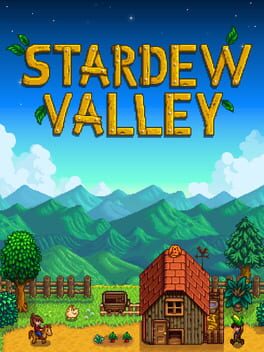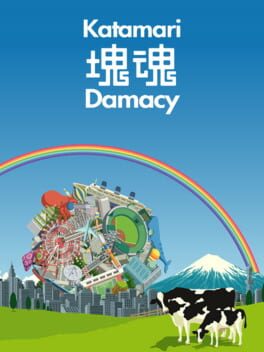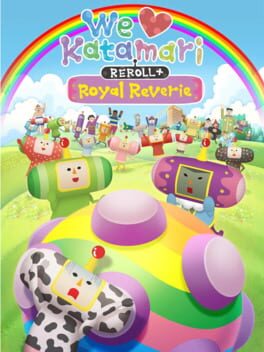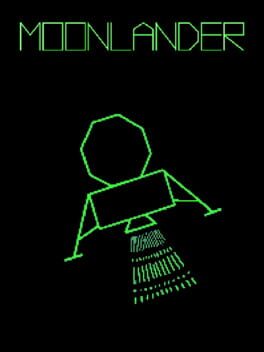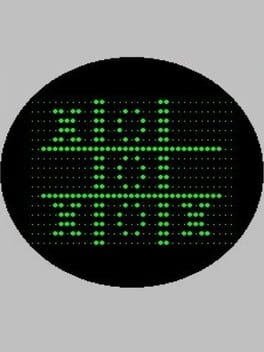kro
7 reviews liked by kro
Stardew Valley
2016
Katamari Damacy
2004
Outer Wilds
2019
Unrepeatable space adventure.
The first immediate thrill in Outer Wilds is interfacing with its world and machinery. The pressure you apply on sticks and triggers translates directly into sometimes QWOP-ish mechanics that, whenever the game can get away with it, are contained in diegetic gadgets and contraptions. Hearthian (your) technology is simple on its own, but unpredictable in the face of the physics of an entire solar system, and the moment-to-moment fun comes from managing that friction. Parallel to it runs the solar system itself, which takes up more and more mental real estate as you force the tension of space travel into normalcy.
Younger me would often bring up a "dream game" of sorts; a fantasy world with no levels or stats; no restrictions to exploration but information. You'd meet a monster in some woods and you couldn't get past it, but paying a visit to an old hunter in a nearby town would teach you of a hidden weak point. A seemingly impossible labyrinth would actually react to a specific material, letting you know the way. That sort of stuff, interwoven in an open world where knowledge would always lead to other knowledge. An adventure game, but, like, for real. Then I started studying gamedev and immediately wrote it off as impossible in the face of the daunting physical reality of game production. Apparently, it wasn't.
Along comes Outer Wilds, doing exactly what I wanted in ways I couldn't even imagine back then. Rather than specifics of fantasy pulp, you're solving the whole universe one 22-minute time loop at a time. What you learn during each run applies to all successive ones, piling on and on until the seemingly random bits of information you'd cluelessly stumbled upon start to dopamine-inducingly link up in a massive web and light a path forward that had always been there, hidden in plain sight. The cyclical setup is the key: on the one hand, it creates organic cliffhangers--every reset happens at the threshold of one revelation or another--and on the other, it establishes than no mechanical exercise will be complex enough for the timer to be a problem. Cleaning up loose ends is the only ativity with the potential to be a little underwhelming (while some discoveries are brain-expanding bombshells, some are small nuances that don't offer much of a climax), but it's never enough to dilute the feeling of exploration.
Having just finished the game, I've seen everything there is to see, from the many horrible deaths space can conjure up to moments of breathtaking emergent beauty. The universe isn't meant to be scary. It is what it is and it's my home. There's nothing left for me to do there anymore, but I had a good time learning.
The first immediate thrill in Outer Wilds is interfacing with its world and machinery. The pressure you apply on sticks and triggers translates directly into sometimes QWOP-ish mechanics that, whenever the game can get away with it, are contained in diegetic gadgets and contraptions. Hearthian (your) technology is simple on its own, but unpredictable in the face of the physics of an entire solar system, and the moment-to-moment fun comes from managing that friction. Parallel to it runs the solar system itself, which takes up more and more mental real estate as you force the tension of space travel into normalcy.
Younger me would often bring up a "dream game" of sorts; a fantasy world with no levels or stats; no restrictions to exploration but information. You'd meet a monster in some woods and you couldn't get past it, but paying a visit to an old hunter in a nearby town would teach you of a hidden weak point. A seemingly impossible labyrinth would actually react to a specific material, letting you know the way. That sort of stuff, interwoven in an open world where knowledge would always lead to other knowledge. An adventure game, but, like, for real. Then I started studying gamedev and immediately wrote it off as impossible in the face of the daunting physical reality of game production. Apparently, it wasn't.
Along comes Outer Wilds, doing exactly what I wanted in ways I couldn't even imagine back then. Rather than specifics of fantasy pulp, you're solving the whole universe one 22-minute time loop at a time. What you learn during each run applies to all successive ones, piling on and on until the seemingly random bits of information you'd cluelessly stumbled upon start to dopamine-inducingly link up in a massive web and light a path forward that had always been there, hidden in plain sight. The cyclical setup is the key: on the one hand, it creates organic cliffhangers--every reset happens at the threshold of one revelation or another--and on the other, it establishes than no mechanical exercise will be complex enough for the timer to be a problem. Cleaning up loose ends is the only ativity with the potential to be a little underwhelming (while some discoveries are brain-expanding bombshells, some are small nuances that don't offer much of a climax), but it's never enough to dilute the feeling of exploration.
Having just finished the game, I've seen everything there is to see, from the many horrible deaths space can conjure up to moments of breathtaking emergent beauty. The universe isn't meant to be scary. It is what it is and it's my home. There's nothing left for me to do there anymore, but I had a good time learning.
Mother 3
2006
It's impressive the way Shigesato Itoi utilizes the Mother series to critique the day-to-day aspects we take for granted within our lives, while also not hesitating in drenching said aspects in both naturalistic and pop culture-infused aesthetic pleasures to demonstrate both the moral ambiguity and the inherent beauty of the mundane. Outside of the distinctive pseudo-modern sci-fi fantasy settings the games are set within and the earnestly and meaningfully sentimental tone they're garnished by, I find that it's the little things in the Mother series that really draw me in. The atypical verbiage in the battle dialogue, the bespoke sound design, or how every NPC manages to say something meaningful; not necessarily always meaningful to the story or plot, but in what it conveys to the player about the game's world or even the real world -- and often without utilizing more than one or two textboxes. Some of that could be attributed to the various localization both official and unofficial, but when looking at all three games with a wider lense, it's clear Itoi didn't want to settle for what was easy when it came to writing the scripts and scenarios for the Mother trilogy. There's a self-evident wisdom pocketed into each slice of text, in all three Mother titles, but especially within Mother 3.
And that isn't to say Itoi's writing is flawless; he has some clear cultural and experiential blindspots, but at least he never stumbles into anything truly condemnable. Towards the beginning of Mother 3 there is a joke that could easily be construed as a some sort of blackface "gag", but like many of the "big swings" Itoi takes in Mother 3: it could definitely be worse, and it's arguably "benign". Of course, I'm a white woman, so you can easily take my opinion there with a grain of salt. But I do happen to be queer and trans, so I can speak about on probably the most controversial aspect of Mother 3's cast in recent years: the Magypsies.
The name alone should probably raise some eyebrows since it's a portmanteau that appears to contain a historically pejorative term for a real world ethnic group; again, I can't really speak on that aspect personally, but I feel it remains part of the discussion. And boy is that a discussion, especially when you get into how the characters fit into queer representation. Aesthetically, they're pretty explicitly just stereotypical depictions of the "okama" trope, but I find it difficult to not love them as individual characters textually despite that. They're morally complex, they're fun, and even if I wish they'd been implemented with more tact they're one of the only depictions of (technically speaking) nonbinary characters within an officially published Nintendo title before the modern era.
Of course, that leads to another problematic element, specifically how depictions of nonbinary people in media leave them often relegated to god-like entities, and the Magypsies unfortunately fall into that trope. Though personally, I feel like it ends up working in service to the game's theme of duality. The razor and lipstick combination used to represent them could be taken as an intentional absurdity (deprecating humor), and perhaps it was meant that way at one point, but I find it difficult to not see it as a deliberate celebration of both masculinity and femininity as forces of identity and expression. Really, it's difficult not to be left with a positive takeaway from the characters on some level, to make queer people have such an important role within the game's world, to make their razor and lipstick items be the best healing/revival items in the game. They're far from perfect, but in that sense they fit well into the game's themes of "impurity" or moral fluidity.
That late game NPC that proclaims a softer side to one of the primary antagonists that the player never sees, multiple characters who are ostensibly on the "good side" who are explicitly abusive to their children, optional text that suggests Lucas himself has potentially bullied animals for fun; none of it is in your face, and none of it is directly excused, but it feels relevant to Itoi's building of a world that doesn't attempt to wash away the imperfections of our own. Even when demonstrating the positives and negatives of both pre-industrial and post-industrial life, it doesn't attempt to obfuscate the highs and lows of either condition.
I say pre and post-industrial instead of pre and post-capitalism because I don't feel like capitalism is really what Mother 3 is trying to tackle. Like, I won't say Mother 3 isn't not explicitly anti-capitalist, but I don't think it does the game justice to summarize up the game's themes as "capitalism is evil" or even just strictly within that very narrow framing. I think there's a very explicit critique of market capitalization, but it's entrenched within the game's exploration of the natural state vs technological growth. Specifically, technological growth in the context of commercialization, and what that does to people and their relationships with others. Without spoiling, I can't help but feel this core theme is shown most explicitly towards the end of the game; and it can be a gut punch to fans of EarthBound/Mother 2 if they haven't yet come to terms with it at that point.
And even then, you probably couldn't reduce Mother 3 down to simply "consumer culture is bad" either, but I think it is most explicitly critiquing consumerism/industrialization and the sometimes deceptively dangerous artificiality of the products we consume. Even if it lacks the cerebral and more actively intellectual commentary of something like Disco Elysium or Pentiment, Mother 3 has that shared interest in showing the world for the complex mess that it is while also being quite honest in the side that it's chosen within its internal debate.
Mother 3 is a game of a lot of themes and concepts, but the most obvious one in the end is "love". Whether that's romantic, familial, humanistic, or just simply not being an asshole to the people around you. That's what I love about the Mother series in the end, how despite it having a mostly critical tone, it effortlessly circles back into sincere sentimentality. Mother 3 is the only piece of media to manage to make me uncontrollably sob (even if EarthBound gives me the biggest lump in my throat overall). I don't really know how Itoi and his teams did it multiple times, but in an age where media seems so keen on empty oversentimentality, each replay of the Mother trilogy still manages to make me feel all these things again and more, even after all these years (couldn't figure out an elegant way to slot this in, but I've been playing/replaying these games for a decade and a half at this point).
Mother 3 is Itoi at his rawest, or at least as raw as he could be within the confines of development for the Game Boy Advance, and for all the games that have been inspired by his series (bad, medium, or good) none of them have really managed to recapture that exact acute sagaciousness in tone and presentation. Perhaps what people should takeaway from these games isn't something literal, but something more epistemological? Regardless, the Mother series -- especially Mother 3 -- feels like Itoi's truth, and I'm so grateful that these games even exist in the first place.
And that isn't to say Itoi's writing is flawless; he has some clear cultural and experiential blindspots, but at least he never stumbles into anything truly condemnable. Towards the beginning of Mother 3 there is a joke that could easily be construed as a some sort of blackface "gag", but like many of the "big swings" Itoi takes in Mother 3: it could definitely be worse, and it's arguably "benign". Of course, I'm a white woman, so you can easily take my opinion there with a grain of salt. But I do happen to be queer and trans, so I can speak about on probably the most controversial aspect of Mother 3's cast in recent years: the Magypsies.
The name alone should probably raise some eyebrows since it's a portmanteau that appears to contain a historically pejorative term for a real world ethnic group; again, I can't really speak on that aspect personally, but I feel it remains part of the discussion. And boy is that a discussion, especially when you get into how the characters fit into queer representation. Aesthetically, they're pretty explicitly just stereotypical depictions of the "okama" trope, but I find it difficult to not love them as individual characters textually despite that. They're morally complex, they're fun, and even if I wish they'd been implemented with more tact they're one of the only depictions of (technically speaking) nonbinary characters within an officially published Nintendo title before the modern era.
Of course, that leads to another problematic element, specifically how depictions of nonbinary people in media leave them often relegated to god-like entities, and the Magypsies unfortunately fall into that trope. Though personally, I feel like it ends up working in service to the game's theme of duality. The razor and lipstick combination used to represent them could be taken as an intentional absurdity (deprecating humor), and perhaps it was meant that way at one point, but I find it difficult to not see it as a deliberate celebration of both masculinity and femininity as forces of identity and expression. Really, it's difficult not to be left with a positive takeaway from the characters on some level, to make queer people have such an important role within the game's world, to make their razor and lipstick items be the best healing/revival items in the game. They're far from perfect, but in that sense they fit well into the game's themes of "impurity" or moral fluidity.
That late game NPC that proclaims a softer side to one of the primary antagonists that the player never sees, multiple characters who are ostensibly on the "good side" who are explicitly abusive to their children, optional text that suggests Lucas himself has potentially bullied animals for fun; none of it is in your face, and none of it is directly excused, but it feels relevant to Itoi's building of a world that doesn't attempt to wash away the imperfections of our own. Even when demonstrating the positives and negatives of both pre-industrial and post-industrial life, it doesn't attempt to obfuscate the highs and lows of either condition.
I say pre and post-industrial instead of pre and post-capitalism because I don't feel like capitalism is really what Mother 3 is trying to tackle. Like, I won't say Mother 3 isn't not explicitly anti-capitalist, but I don't think it does the game justice to summarize up the game's themes as "capitalism is evil" or even just strictly within that very narrow framing. I think there's a very explicit critique of market capitalization, but it's entrenched within the game's exploration of the natural state vs technological growth. Specifically, technological growth in the context of commercialization, and what that does to people and their relationships with others. Without spoiling, I can't help but feel this core theme is shown most explicitly towards the end of the game; and it can be a gut punch to fans of EarthBound/Mother 2 if they haven't yet come to terms with it at that point.
And even then, you probably couldn't reduce Mother 3 down to simply "consumer culture is bad" either, but I think it is most explicitly critiquing consumerism/industrialization and the sometimes deceptively dangerous artificiality of the products we consume. Even if it lacks the cerebral and more actively intellectual commentary of something like Disco Elysium or Pentiment, Mother 3 has that shared interest in showing the world for the complex mess that it is while also being quite honest in the side that it's chosen within its internal debate.
Mother 3 is a game of a lot of themes and concepts, but the most obvious one in the end is "love". Whether that's romantic, familial, humanistic, or just simply not being an asshole to the people around you. That's what I love about the Mother series in the end, how despite it having a mostly critical tone, it effortlessly circles back into sincere sentimentality. Mother 3 is the only piece of media to manage to make me uncontrollably sob (even if EarthBound gives me the biggest lump in my throat overall). I don't really know how Itoi and his teams did it multiple times, but in an age where media seems so keen on empty oversentimentality, each replay of the Mother trilogy still manages to make me feel all these things again and more, even after all these years (couldn't figure out an elegant way to slot this in, but I've been playing/replaying these games for a decade and a half at this point).
Mother 3 is Itoi at his rawest, or at least as raw as he could be within the confines of development for the Game Boy Advance, and for all the games that have been inspired by his series (bad, medium, or good) none of them have really managed to recapture that exact acute sagaciousness in tone and presentation. Perhaps what people should takeaway from these games isn't something literal, but something more epistemological? Regardless, the Mother series -- especially Mother 3 -- feels like Itoi's truth, and I'm so grateful that these games even exist in the first place.
Moonlander
1973
Creo que esta es la versión que jugué, pero no estoy seguro, porque las fechas para cada una son un poco nebulosas en esta página. Con eso dicho, Lunar Lander se siente como una versión un poco más elaborada del mismo desafío tenso que propuso Hammurabi, lo cual tiene sentido considerando la velocidad de los ordenadores de la época. No me gustó tanto, principalmente porque esperaba un juego que involucrara más reflejos, pero decir que te "gusta" o "no te gusta" Lunar Lander es un poco como decir que no te gustaron los cortos de los Lumière o los de la compañía de Edison. ¿Tiene sentido hacer juicios de ese estilo a estas alturas?
-----------------------------------------------------------------------------
I think this is the version I played, but I'm not sure. Dates for each version are a pain to find out. That being said, Lunar Lander feels like a slightly more involving version of the same tension-mounting challenge that Hammurabi proposed, which makes sense considering the computers of the time. I didn't like it as much, mainly because I expected something that involved more reflexes, but saying that you "like" or "don't like" this feels like saying you didn't like the Lumière or Edison's shots. Does it even make sense to make that judgement at this point?
-----------------------------------------------------------------------------
I think this is the version I played, but I'm not sure. Dates for each version are a pain to find out. That being said, Lunar Lander feels like a slightly more involving version of the same tension-mounting challenge that Hammurabi proposed, which makes sense considering the computers of the time. I didn't like it as much, mainly because I expected something that involved more reflexes, but saying that you "like" or "don't like" this feels like saying you didn't like the Lumière or Edison's shots. Does it even make sense to make that judgement at this point?
